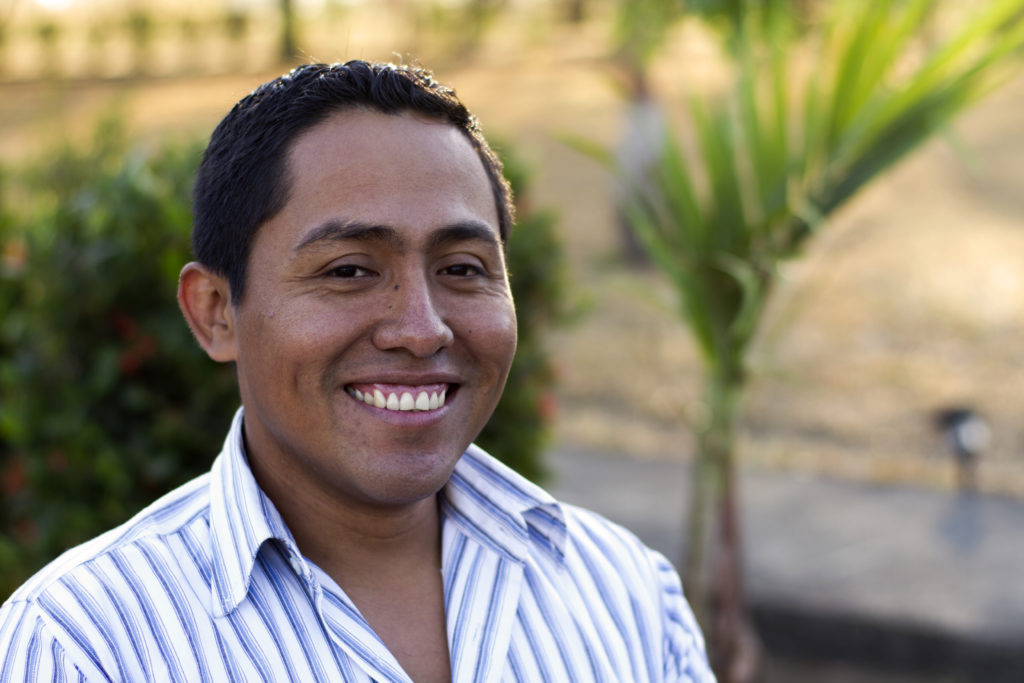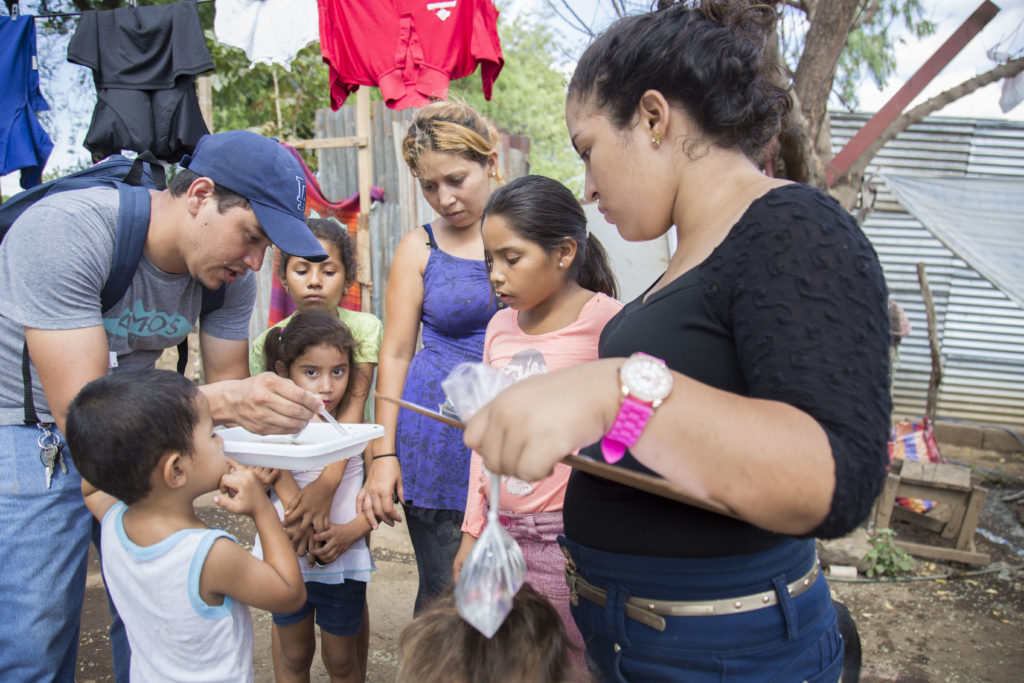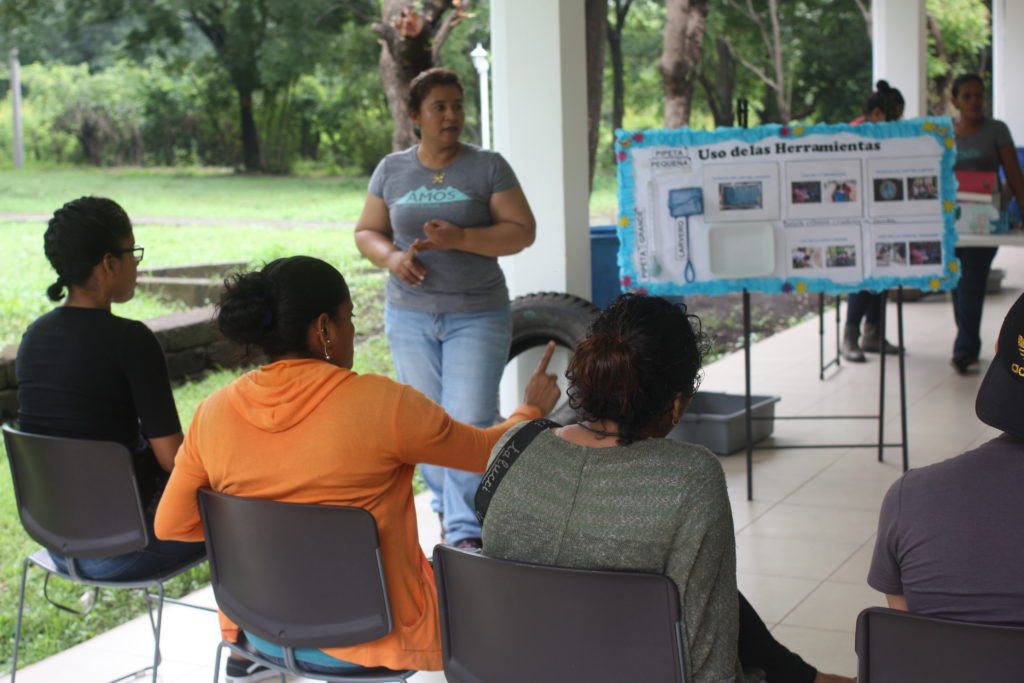In 2016, a new virus called Zika threatened the health of millions of people. It was the first known mosquito-borne virus to cause birth defects such as microcephaly.
Your prompt response to this health emergency helped AMOS and our partner, the Sustainable Sciences Institute, develop a low-cost, successful, and scalable intervention to prevent the spread of Zika, dengue, and chikungunya. Using the evidence-based Care Group model, we trained networks of community health volunteers to educate their neighbors about searching for and eliminating mosquito breeding sites in their homes.
This year, our Zika project came to an end, and with your support, over 900 trained community volunteers were able to make an incredible impact!
Thank you for helping them to:
- Educate more than 10,000 households
- Distribute 1,200 Zika prevention kits to pregnant moms
- Reduce mosquito breeding sites in 34 neighborhoods of Managua by over 70%!


“One of the greatest achievements of this project was helping to further advance community empowerment,” Lester Lorente, Zika Prevention Project Coordinator, says.
“We brought together people with diverse beliefs to address the common goal of preventing disease. Even now, 94% of the neighborhoods involved have active networks of community volunteers still working together to promote good health.
At the end of this project, we were all amazed to see the huge impact of community empowerment in people’s lives. We saw community volunteers grow so much. In one of the neighborhoods we served there were only two people with college degrees, and at the beginning of this year 15 youth who served as community volunteers in the area got into college. Many of them told us the experience of working and serving their communities gave them purpose, they felt valued and respected, and that motivated them to pursue a college degree.
This project also left us with rich experiences and lessons to apply to other health care programs, especially regarding the Care Group methodology and the development of educational materials. These strategies have already been successfully implemented in Support Groups in Nejapa and with WASH (Water, Sanitation, and Hygiene) Promoters in rural Nicaragua, and they will also be used in our new Parenting With Love pilot project.
Another important achievement of this project was related to social cohesion. In 2018, the national socio-political crisis in Nicaragua led to the polarization of society and clashes between neighbors, friends, and even family members who strongly disagreed on their perspectives. This also affected our community work within this project, but we managed to create safe spaces where people could respectfully express their opinions and feelings, and we put a lot of emphasis on the importance of this project and the work of community volunteers. At that time, we had a spike in dengue cases at a national level, and everyone was reminded that dengue could affect anyone, and that we needed to unite efforts to continue our life-saving work.
Thank you for making all of this possible!”


